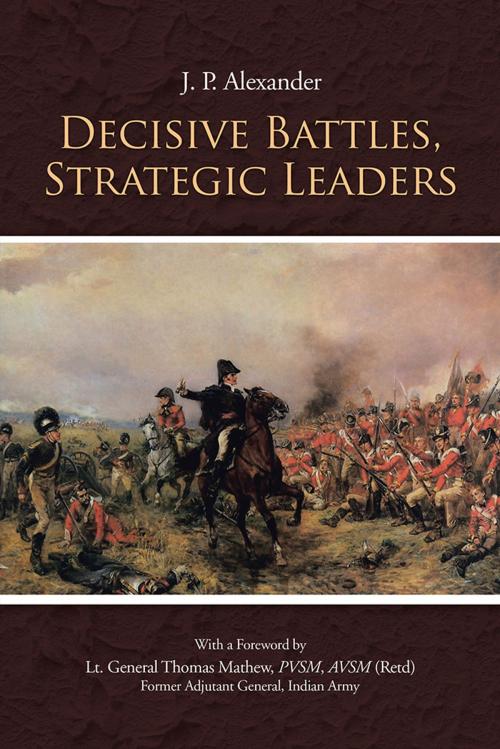| Author: | J. P. Alexander | ISBN: | 9781482818048 |
| Publisher: | Partridge Publishing India | Publication: | May 1, 2014 |
| Imprint: | Partridge Publishing India | Language: | English |
| Author: | J. P. Alexander |
| ISBN: | 9781482818048 |
| Publisher: | Partridge Publishing India |
| Publication: | May 1, 2014 |
| Imprint: | Partridge Publishing India |
| Language: | English |
Strategic leadership is observed through campaigns of the great commanders from Pharaoh Thutmose at Meggido (1479 BC) to Manekshaw and the Bangladesh War of 1971. The battlefield tactics of Cyrus, Alexander, Hannibal, Genghis, Robert Bruce, Shogun Tokugawa Ieyasu, Gustavus Adolphus, Marlborough, Abdali, Napoleon, Lee, and Giap are examined. The cataclysmic fall of Constantinople, Vijay Nagar, Delhi (1857), and Singapore are described in gory detail. Sun Tzu, Musashi, Maos guerilla tactics, Clausewitz and the theories of Liddell Hart, De Gaulle and Fuller, leading to the strategic use of tanks in the German Blitzkrieg are analyzed. The author enters the mind of the strategist to understand how and why a particular battlefield decision impacts the fate of armies and nations. The basic principles of war, business/war and business/games analogy are lucidly presented to provide interesting reading for practicing managers.
Strategic leadership is observed through campaigns of the great commanders from Pharaoh Thutmose at Meggido (1479 BC) to Manekshaw and the Bangladesh War of 1971. The battlefield tactics of Cyrus, Alexander, Hannibal, Genghis, Robert Bruce, Shogun Tokugawa Ieyasu, Gustavus Adolphus, Marlborough, Abdali, Napoleon, Lee, and Giap are examined. The cataclysmic fall of Constantinople, Vijay Nagar, Delhi (1857), and Singapore are described in gory detail. Sun Tzu, Musashi, Maos guerilla tactics, Clausewitz and the theories of Liddell Hart, De Gaulle and Fuller, leading to the strategic use of tanks in the German Blitzkrieg are analyzed. The author enters the mind of the strategist to understand how and why a particular battlefield decision impacts the fate of armies and nations. The basic principles of war, business/war and business/games analogy are lucidly presented to provide interesting reading for practicing managers.















